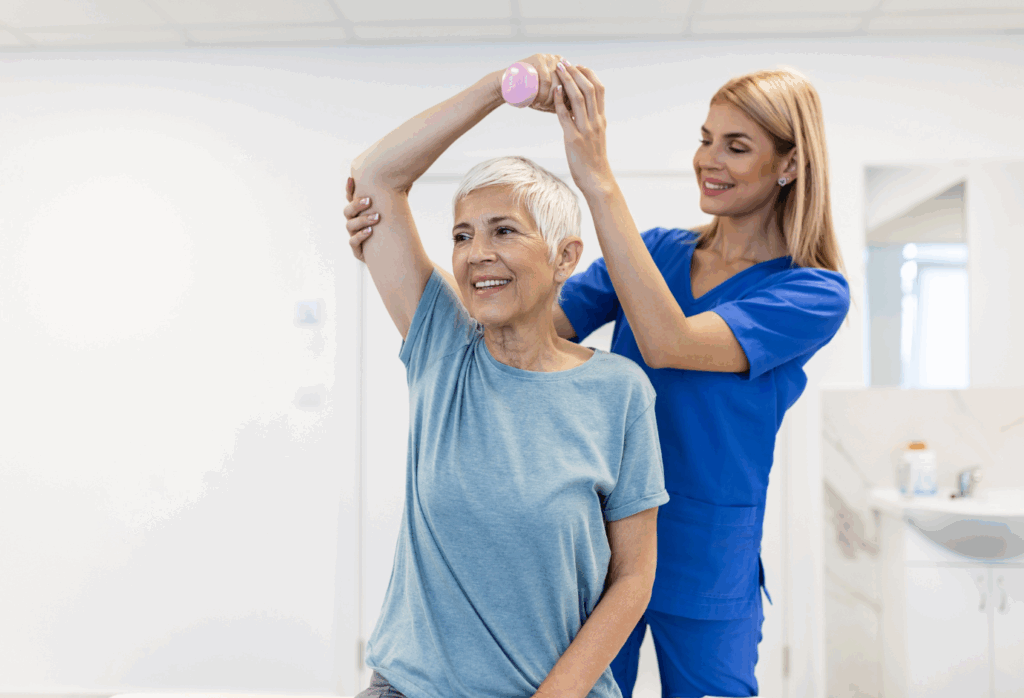A new menopause virtual health hub giving women access to flexible, complex care from highly trained health professionals and physiotherapists will soon open in Campbelltown.
The South Western Sydney Local Health District Specialist Menopause Service will allow GPs, specialists and nurse practitioners to refer eligible women to the appropriate practitioner to manage menopausal symptoms through in person appointments or via telehealth.
The hub, based at Campbelltown Hospital, is one of four dedicated health hubs in the state funded by the NSW government and is a component of NSW Health’s menopause network. It will serve women across Western Sydney, Nepean Blue Mountains, and the Murrumbidgee local health districts.
The menopause virtual health hub is the fourth such hub in the state. Other locations include St Leonards, Randwick, and Wallsend, near Newcastle.
Health Minister Ryan Park said earlier this month that the hub will act as a “pathway” to support women who have undergone multiple types of treatment.
“This pathway is designed to be for women to be referred into if they are suffering from those complex symptoms, if they have not had any relief, and if they’ve undertaken care already but haven’t been able to get that issue managed,” he said.
“The real focus is not just the hubs and the treatment … it’s about the professional development and training, particularly of our GPs and our primary care providers.”
The Australian Physiotherapy Association (APA) has welcomed the State Government’s investment in the new hubs, and encourages other state bodies to follow suit.
“NSW is leading Australian healthcare through their acknowledgement of nuanced women’s health concerns and this systemic reform will undoubtedly improve quality of life,” APA Women’s, Men’s and Pelvic Health National Chair, Dr Angela James said.
According to Dr James, the new virtual health hub will not only remove barriers to women’s essential health services but will pave the way for equitable funding of women’s health issues.
“[The hub] acknowledges that healthcare is not ‘one-size-fits-all’ and will enable physiotherapists to deliver their essential first-line care in ways that suit their clients and the severity of their symptoms,” she explained.
“Menopause and perimenopause are conditions that will affect every woman, and the physiological symptoms often greatly impact their quality of life.”
“We often associate menopause with the overt symptoms, but physiotherapists are equipped to manage covert presentations like pelvic floor dysfunction, musculoskeletal pain and bone health, to name a few.”
Dr James believes the investment in virtual treatment avenues will ensure women across NSW, including in rural and regional areas or those who are unable to travel due to their symptoms, will have better health outcomes.
“As healthcare professionals, we continue to fight for people from every community to have access to adequate care,” she said, adding that other Australian state governments should “fund women’s healthcare and invest in similar accessible care options so women can thrive through every stage of life.”
Last October, Minister Park launched the new Menopause Services, saying the hubs would care for women needing support for severe or complex menopause symptoms.
“Up to one in four women experience severe and debilitating menopause symptoms, which is why services like this one are so important,” he noted.
Minister for Women, Jodie Harrison added, “Women have identified menopause as a top health issue and managing it can be complex.”
“The opening of a new Menopause Service in the Central Coast ensures regional women experiencing menopause symptoms who need specialised care and support can get it when they need it, including referrals to a Menopause Hub.”
In Australia, roughly twenty per cent of women experience severe or long-lasting menopause symptoms.
During menopause, hormonal changes can lead to an increased risk of osteoporosis and bone thinning. Women may not be aware of these conditions until they break a bone. Each year in Australia, one in three women over 50 will experience a bone fracture caused by poor bone health.
“For many women, the lived experience of menopause remains largely invisible and unsupported,” Rita Nasr recently wrote in this masthead. “The physical load [hot flashes, night sweats, sleep disruption, weight changes, joint pain, fatigue, hormonal shifts affecting energy, libido, and overall wellbeing] can be incredibly debilitating for many women but we are expected to soldier through.”
Earlier this year, the federal government committed A$26 million over two years to fund new menopause health assessments. Now, women can access a Medicare rebate for menopause health assessments, which are essentially menopause-specific consultations aimed at improving health care for women experiencing perimenopause and menopause.
Be part of the national conversation changing how we see, support and invest in women’s health. Join us on Tuesday 2 September in Sydney for a full day of expert panels, lived-experience storytelling, and bold, inclusive ideas. Tickets are on sale now for the 2025 Women’s Health & Wellbeing Summit.


